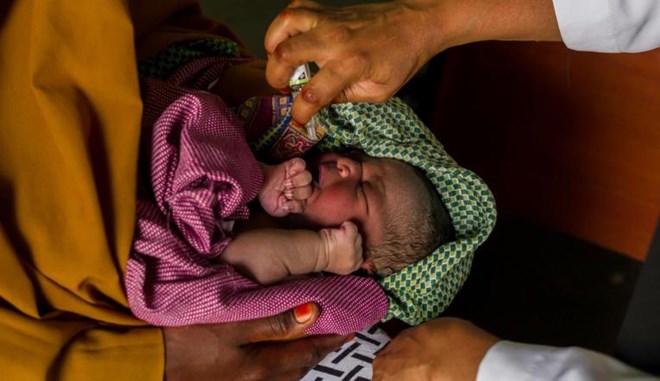MOGADISHU – On Saturday, Somalia and UN agencies requested humanitarian partners, local private agencies, and funders to assist in expanding children’s immunization programs and outreach across the country.
Somalia has an estimated 639, 000 children under the age of one year, according to the ministry of health, the World Health Organization (WHO), and the United Nations Children’s Fund (UNICEF), however many of them are unable to receive their routine childhood vaccines.
In a joint statement released to honor World Immunization Week, UNICEF Representative in Somalia Angela Kearney said, “It’s critical that parents and caregivers take responsibility of their children’s health by ensuring that every child gets their routine immunizations.”
“Vaccines provide protection against preventable diseases and help people live longer, better lives.” Vaccines are completely free, and it is the correct thing to do.
The goal of World Immunization Week 2022, which runs from April 24 to 30, is to increase worldwide engagement in immunization, to emphasize the importance of vaccination, and to improve the health and well-being of everyone, everywhere.
According to the United Nations, 510,951 children received the third dose of the penta vaccine last year to protect them from pertussis, diphtheria, hepatitis B, tetanus, and Haemophilus influenzae type b, whereas nearly 80% of all reported measles cases in 2021 were children under the age of five.
A fragile health system, further hampered by conflict and natural disasters, including the ongoing drought, limited access to cold chain facilities in remote areas and among hard-to-reach populations, according to the UN, are some of the challenges Somalia faces in ensuring all communities have access to vaccinations.
Only 9% of Somalis have been properly vaccinated against COVID-19, according to Minister of Health and Human Services Fawziya Abikar Nur.
According to Nur, in impoverished nations like Somalia, the bulk of the population is still unvaccinated.
“They’re still at risk, and we can’t stress this enough: we need to reach everyone, no matter where they reside, to stop diseases like COVID-19 from evolving and spreading,” she said.
Vaccines, according to WHO Somalia Representative Mamunur Rahman Malik, are one of public health’s biggest success stories.
“Yet, despite all of our knowledge and skills, Somali children continue to catch vaccine-preventable diseases, and adults continue to be sick with diseases like COVID-19,” Malik said.

